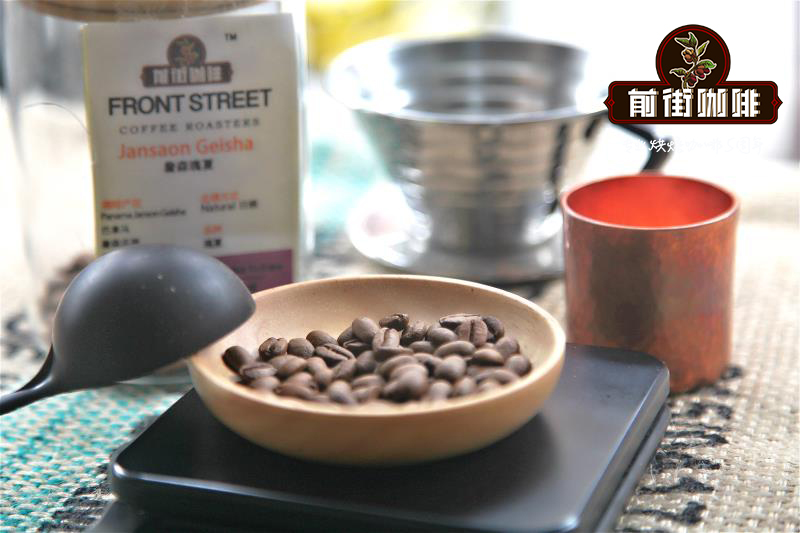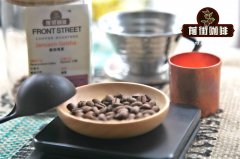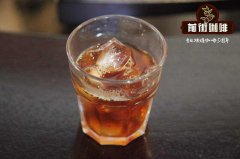Brunas Manor in El Salvador: what is the taste and flavor of Salvadoran coffee?

Professional coffee knowledge exchange more coffee bean information please follow the coffee workshop (Wechat official account cafe_style)
El Salvador is the smallest and most densely populated country in Central America, and coffee cultivation is a major source of income for Salvadorans.
El Salvador has 70% of the lava plateau and mountains, there are many volcanoes, and the volcanic soil has a very fertile nutrition, suitable for coffee cultivation, volcanic type of origin can produce coffee with unique flavor
Coffee has been grown since 1740. The land area of growing coffee accounts for about 8% of the country, and Dazhi is divided into five main producing areas, namely Apaneca,Central Belt,Chichontepec,Tecapa&Cacahuatique Mountain Range, which is roughly distributed in the alpine slopes or plateau areas covered with volcanic ash above 1200 meters above sea level. Most of them grow coffee by "shade planting" (planting Shade Grown in the shade of trees). The advantages of this method are that coffee beans can mature uniformly, honey mucus content increases and weight is high. Sweet polyphenols are more likely to form, making the main ingredients of coffee beans fully formed.
For coffee trees with too much sunshine, the edges of the leaves will be rolled up, causing water loss, which is not conducive to photosynthesis, reduce carbon dioxide absorption, and reduce sugar. Saguo coffee fruits are harvested only once a year, mostly from November to February of the following year. More than 60% of the varieties are bourbon strains. It is especially worth mentioning that Saguo is the most important country for growing Pacas and Pacamara. In addition, the coffee grading system in Saudi Arabia is basically divided into three grades according to the planting altitude: lowland CS (500m ~ 900m), highland HG (900m ~ 1200m) and extreme highland SHG (1200m).
Juan Ramon Alvarado, the owner of the estate, has a degree in agriculture from EARTH University, and his wife Natalia, a fourth-generation coffee farmer, set up the Brumas microprocessor in 2004, producing about 750 bags of coffee a year. He used the BRIX meter to measure sugar to determine the best harvest time for coffee cherries, and according to Juan Ramon's test results, the best flavor point for sweet and sour balance was when the sugar content reached 15.5%.
After the coffee is picked, the peel is removed first, and the pulp scraping machine is used to control the degree of peeling the pulp, retaining a certain degree of sticky pulp layer (mucilage). Then, different from the traditional washing treatment, it does not need fermentation to remove the sticky pulp layer, on the contrary, it is allowed to dry directly with this layer of slime, and then the sticky layer and shell (parchment) are removed directly. Juan Ramon calls the coffee produced by this treatment Honey Coffee. This low acidity, increased complexity, sweet flavor is through a stable, uniform and careful exposure process, so that the surrounding residual pectin sugars and alcohols through diffusion to increase sweetness and fuller texture, and then dry with a net bed.
The water consumption of this treatment is only 5% of that of the traditional washing plant, and it can be made without a huge washing tank and exposure square. The display of flavor depends on the degree of retention of the pulp, challenging the careful skill and courage of the treater. although in the process of treatment, there will be too much drying failure and mildew, uneven exposure or too rapid overfermentation. But this new treatment has become popular in Central America in recent years and has shone brilliantly in all kinds of coffee competitions.
Salvadoran coffee has a clear and clean flavor, bright fruit aroma, first the sour taste of BlackBerry, and then it will be as sweet as cube sugar to neutralize, the flavor is like fruit juice
Important Notice :
前街咖啡 FrontStreet Coffee has moved to new addredd:
FrontStreet Coffee Address: 315,Donghua East Road,GuangZhou
Tel:020 38364473
- Prev

The treatment of coffee beans in Perata Manor, a boutique coffee farm in Nicaragua, Central America.
Professional coffee knowledge exchange more coffee bean information please follow the coffee workshop (Wechat official account cafe_style) Nicaragua is a country in Central America, the main economic source is coffee cultivation, so Nicaragua has a good coffee estate, coffee species is Arabica, coffee quality, flavor in the international performance is also good. Comparison of Nicaraguan coffee on the market
- Next

What is special about the bourbon varieties grown in El Salvador's boutique coffee Mila for Leigh Manor.
Professional coffee knowledge exchange more coffee bean information please pay attention to the coffee workshop (Wechat official account cafe_style) El Salvador national boutique coffee in the world has a good popularity and audience, the flavor is bright, upward, clear acidity, refreshing taste, mellow thickness, long-lasting, caramel, plum flavor El Salvador has many well-known coffee
Related
- Does Rose Summer choose Blue, Green or Red? Detailed explanation of Rose Summer Coffee plots and Classification in Panamanian Jade Manor
- What is the difference between the origin, producing area, processing plant, cooperative and manor of coffee beans?
- How fine does the espresso powder fit? how to grind the espresso?
- Sca coffee roasting degree color card coffee roasting degree 8 roasting color values what do you mean?
- The practice of lattes: how to make lattes at home
- Introduction to Indonesian Fine Coffee beans-- Java Coffee producing area of Indonesian Arabica Coffee
- How much will the flavor of light and medium roasted rose summer be expressed? What baking level is rose summer suitable for?
- Introduction to the characteristics of washing, sun-drying or wet-planing coffee commonly used in Mantenin, Indonesia
- Price characteristics of Arabica Coffee Bean Starbucks introduction to Manning Coffee Bean Taste producing area Variety Manor
- What is the authentic Yega flavor? What are the flavor characteristics of the really excellent Yejasuffi coffee beans?

